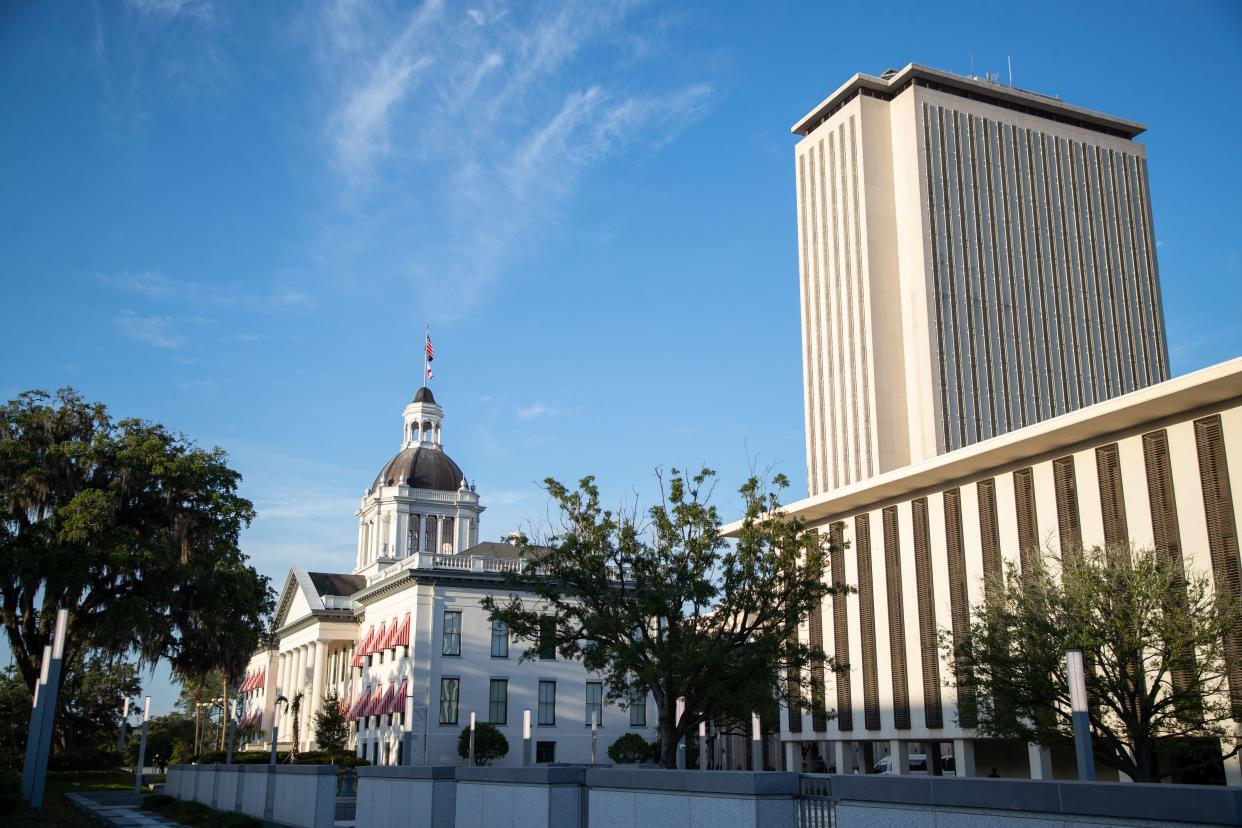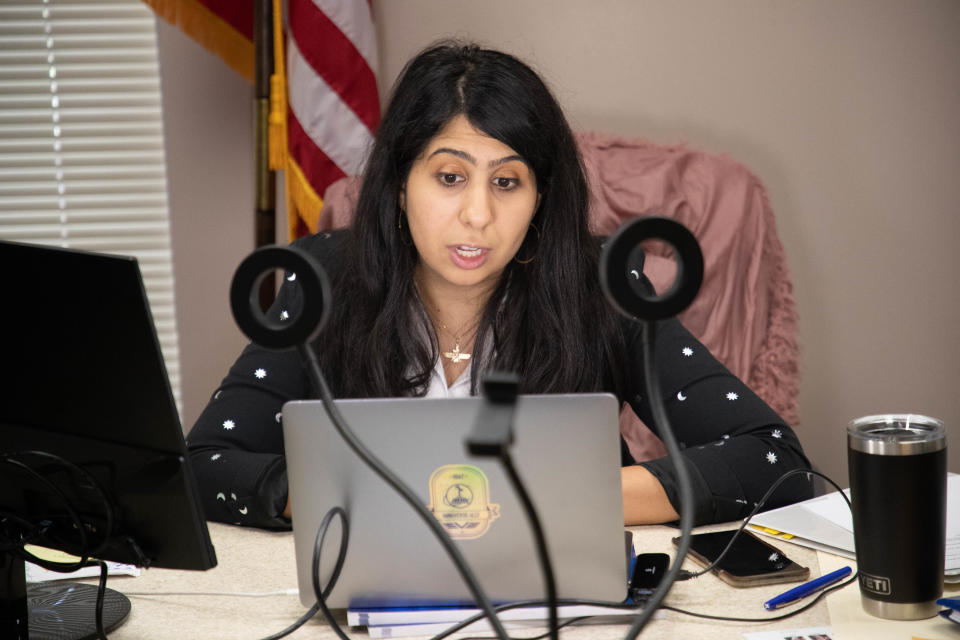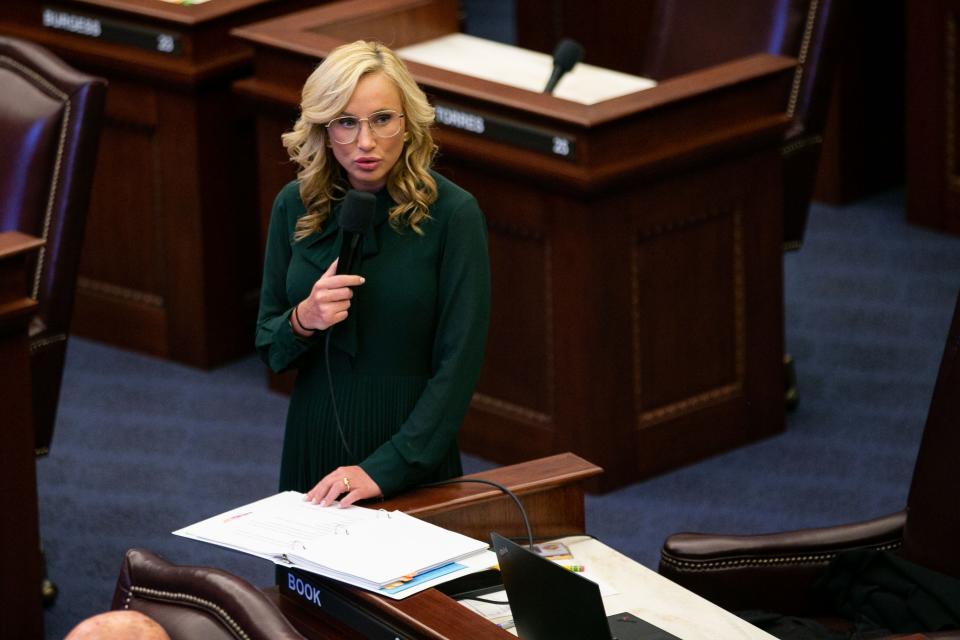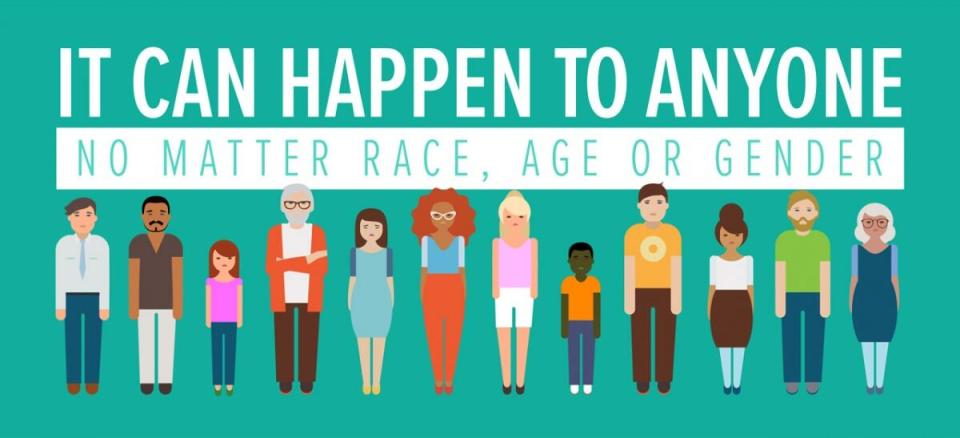Florida legislative watchdog says DCF may be at odds with sex trafficking law

Florida does not know if its Department of Children and Families is following state law for the care of teens found to have been commercially sexually exploited according to the Legislature’s watchdog, the Office of Program Policies and Government Accountability.
The research arm of the legislature asked DCF for case specific data required for the state’s annual report on services provided to child victims of sex trafficking. When told the information does not exist in an extractable form, OPPAGA said it was unable to verify whether DCF is following the The Safe Harbor Act of 2012, which mandates placement and services for teens identified as sex trafficking victims.
The Annual Report on the Commercial Sexual Exploitation of Children 2023 finds there are more than 300 youths in state custody who were preyed upon by sex traffickers. Most are between the ages of 14 and 17, and 83% are female – and they have a likelihood of being revictimized.
State and community-based organizations spend about $13.1 million to provide shelter, treatment, and other services to children who had been trapped by a commercial sex industry.
The Safe Harbor Act of 2012, and subsequent amendments in 2014 and 2016 directs DCF to use a validated human trafficking screening tool to identify victims and reassess their placement in “safe houses” and recovery plan twice annually.
The state researchers concluded they could not “verify whether the (screening) tools and the associated documentation are being completed …" and therefore “there is no way to analyze the information or for DCF to monitor performance.”
When asked for clarification an OPPAGA spokesperson said the report speaks for itself.
A DCF spokesperson objected to the implication that the lack of verification could mean the agency’s policies were out of compliance with legislative mandates.
“The Department is in compliance with the Safe Harbor Act and all of the amendments associated with this legislation,” said Torri Cuddy, director of communications for DCF’s Northwest Region.
Cuddy said Florida is at the forefront of anti-trafficking efforts and is one of only two states to receive a “B” grade in Shared Hope International report card on states’ anti-trafficking programs.
Rep. Anna Eskamani, D-Orlando, sits on the House State Affairs Committee, which oversees agency governance and administrative procedures. She said DCF may be in compliance with Legislative mandates but can’t prove it is without documentation.

“And that’s not great for DCF,” said Eskamani. “When an auditor says they can’t vouch for your numbers, then your numbers are essentially worthless.”
Cuddy said DCF was in the process of making technological enhancements that will allow it to better share the information the legislature requires it to collect, a recommendation OPPAGA made in 2020.
Florida third in the nation on number of trafficking cases
Florida ranks third nationally in the number of reported human trafficking cases, according to the National Human Trafficking Hotline. The DCF human trafficking abuse hotline received 1,750 calls involving children in 2021.
The information OPPAGA sought comes from the ensuing investigation and requirements of the Safety Harbor Act. It pertains to a screening tool used to interview the child to determine whether they had been trafficked, and if so, the follow-up review and analysis of placement and services provided.
And while it is unclear whether DCF policy is consistent with legislative mandate, researchers found that a teen in DCF care who had been sexually trafficked is three times more likely to be revictimized – 93 cases in the last two years – than one in state care for less than a year.
OPPAGA has raised concerns about how DCF uses a screening tool to identify and place teens since 2016 and expressed frustration with how it collects and shares information about cases since 2020.
Senate Democratic Leader Lauren Book, D-Plantation, said having sound data is critical and informs lawmakers’ debate on when and where policy changes are necessary.

“We must be equipped with a full picture of the problem,” said Book. “We must do more to ensure that we have safe, secure foster and safe homes appropriately equipped with trauma-informed care techniques for youth so that they may heal and not end up being exploited again.”
Art, Science, and Trauma
The Institute for Child Welfare at Florida State University has been working with DCF to validate the reliability of its screening tool since 2017.
DCF developed its own tool rather than employ one of the four used by other states.

Researchers said the work has been slowed by technological and staffing issues.
“When we were asked to do this, we were given hard copies of screening tools that we had to enter electronically to be able to run analyses,” said Lisa Magruder, a director at the Institute, about a process involving reviews of thousands of interviews.
The review found screeners’ interpretation of evidence undermined the tool’s reliability as a sex trafficking indicator.
“You could see where screeners would write things in the margins to explain an answer to a simple yes or no (question). They might say yes, but then the explanation showed it really should have been no,” said Magruder, citing one case where an appendectomy scar was the reason for a yes answer to a question about “branding” or “scarring.”
The tool is a series of non-invasive questions and observations to probe what is going on in someone’s life and is a statistically valid predictor of sex trafficking.
An experienced screener helps its reliability.
“You can’t come into these conversations with these youth who have experienced trauma and start asking a checklist of invasive questions. Understandably they are not forthcoming about a lot of things that we’re trying to gather information about,” explained Magruder, about a task that combines the art of counseling with the science of statistics.
Researchers are scheduled to start tests of a new tool in the spring.
Magruder said it shows promise as it contains elements that have been helpful in identifying and placing victims in safer situations.
Book intends to sponsor legislation to require DCF to share the data and documentation the tool produces with state researchers and lawmakers.
The information she seeks includes case-level data about the assessment of youths suspected of having been trafficked, and whether they were placed in safe houses under the Safe Harbor Act.
“I will be working to amend Florida Statues to require DCF to report this data to OPPAGA annually for inclusion in its annual human trafficking review, ensuring the legislature is thoroughly informed,” said Book.
James Call is a member of the USA TODAY NETWORK-Florida Capital Bureau. He can be reached at jcall@tallahassee.com. Follow on him Twitter: @CallTallahassee
This article originally appeared on Tallahassee Democrat: State flags DCF that it may be at odds with sex trafficking law

